Wyoming

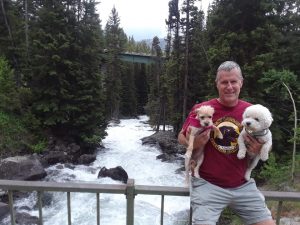 While many people had a terrible 2020, my niece, Toni Chace and her husband, Dave continued to work, and really ended the year in good shape. They didn’t get Covid-19, like so many in the family and hope they don’t. Normally they would do a lot of traveling, but like most people, that was curtailed this year. The only trip they took was to Centennial, Wyoming, to visit Dave’s parents, Jim and Nancy Chase. The trip was a blessing to all, and like most of us, much needed to keep us from getting cabin fever…no pun intended, because they were in Dave’s parents cabin, in Centennial. I’m sure it all felt rather confining for them, but sometimes, a nice quiet vacation can be very nice too.
While many people had a terrible 2020, my niece, Toni Chace and her husband, Dave continued to work, and really ended the year in good shape. They didn’t get Covid-19, like so many in the family and hope they don’t. Normally they would do a lot of traveling, but like most people, that was curtailed this year. The only trip they took was to Centennial, Wyoming, to visit Dave’s parents, Jim and Nancy Chase. The trip was a blessing to all, and like most of us, much needed to keep us from getting cabin fever…no pun intended, because they were in Dave’s parents cabin, in Centennial. I’m sure it all felt rather confining for them, but sometimes, a nice quiet vacation can be very nice too.
As I have talked to Toni’s family members, I am told that she loves her dogs. In fact I’m told that in her family, the dogs, Biscuit and Cricket, are her first loves, with Dave, and her son, James coming in second and third. According to Dave he is the third position. I can’t really decide how “true” that statement is, because I know that Toni dearly loves her husband and son, but in the interest of telling the story as it was told to me, I’ll say that Toni really loves her dogs. James says that his mom loves her dogs more than him and Dave combined. As happens in most owner/pet relationship sources, especially when there are multiple people in the family, pets often choose one owner as their “own” human. That is the case with Biscuit and Toni. Biscuit loves his human…Toni. In fact, Biscuit actually gets separation anxiety when Toni is gone for work. Toni’s sister, Liz Masterson figures that Biscuit sits at the window all day, until Toni gets home. Life (for Biscuit) begins again when Toni (his human) gets home. While loving her dogs more than her husband and son, is a funny thought, it 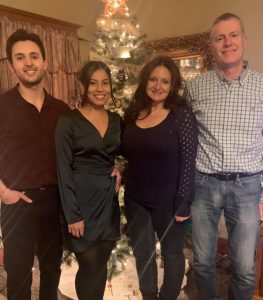
 does go to show Toni’s heart for her pets and her family. She also love buying them treats and toys. I think maybe her dogs just like being treated like babies.
does go to show Toni’s heart for her pets and her family. She also love buying them treats and toys. I think maybe her dogs just like being treated like babies.
While her home is filled with mostly men (Cricked is a girl), her son, James brought home a girl who is in the United States on a work visa, named Manuela. She is from Columbia, and Toni likes her very much. The whole family does. She is bubbly and fun, and most of all, she loves Toni’s pride and joy…her son. Time will tell where that is going, but they are enjoying the journey. Today is Toni’s birthday. Happy birthday Toni!! Have a great day!! We love you!!

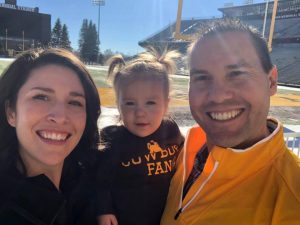 My little great grand niece, Hallie Joy Moore came into this world on December 19, 2020 at 5:00am, in Laramie, Wyoming. Her family had excitedly anticipated her arrival, and she was already so loved, but she arrived two months early, and her time on Earth was not to be long. Hallie, who’s name means “Praise the Lord,” tried very hard to stay, but then she went home to be with her Lord and Savior, Jesus Christ. The doctors and nurses who tried so hard to help Hallie stay, will never forget this sweet little girl who stole their hearts immediately. In the end, she was just too early. Hallie went home at 5:37am, just 37 minutes after her birth.
My little great grand niece, Hallie Joy Moore came into this world on December 19, 2020 at 5:00am, in Laramie, Wyoming. Her family had excitedly anticipated her arrival, and she was already so loved, but she arrived two months early, and her time on Earth was not to be long. Hallie, who’s name means “Praise the Lord,” tried very hard to stay, but then she went home to be with her Lord and Savior, Jesus Christ. The doctors and nurses who tried so hard to help Hallie stay, will never forget this sweet little girl who stole their hearts immediately. In the end, she was just too early. Hallie went home at 5:37am, just 37 minutes after her birth.
Hallie Joy wasn’t here very long, but for those who knew her, in the womb during the months before her birth, in the moments after her arrival and passing, and in the hopes and dreams for her planned future, her impact was everlasting. This sweet little girl captured the hearts of all who had the honor of being there with her, in life and even after. Her spirit and strength will live on in all of her family members. We all feel like we knew her even though we didn’t get to “meet” her in person, because her spirit lives on in our hearts…and we will get to meet her when we go to Heaven.
Hallie is the second daughter of her parents, Lindsay and Shannon Moore. She has a sister named Mackenzie, with whom Hallie bears a strong resemblance. That in itself will be a blessing to her parents, because as Mackenzie grows, they will be able to see the shadow of her little sister Hallie Joy. Every time they say her name, Hallie, they will be saying, “Praise the Lord,” and they will also know that their little girl was a joy to all who knew her, and to all who know of her. She will always be a Joy to her parents hearts whenever they think of her. A child has a deeper impact than just the ones who got to meet them. Her extended family, grandparents, aunts, uncles, cousins, and so many more loved this little girl before we ever knew that she was a little girl. We knew Lindsay and Shannon were having a second baby and we were all excited about it. We couldn’t wait to meet this baby, and that has not changed. We are all looking forward to meeting Hallie, who is with the Lord, and yes, still praising Him right now. That is the beauty of Hallie’s current life. She has had the  opportunity to meet her grandparents, cousin, and many others who have gone home before her. She has been held in the arms of our Lord Jesus, and she has seen the face of God. Her life is not sad. It is glorious, happy, and beautiful. She is perfect, not weak or sick, just perfect. That is the greatest physical part of Heaven. Of course, the truly greatest part is knowing God…knowing Jesus…knowing Holy Spirit, and being always happy. One day she will know her big sister, when the Moore girls are together in Heaven. They will have so much fun, laughing and playing. There are no tears in Heaven…just eternal joy!!
opportunity to meet her grandparents, cousin, and many others who have gone home before her. She has been held in the arms of our Lord Jesus, and she has seen the face of God. Her life is not sad. It is glorious, happy, and beautiful. She is perfect, not weak or sick, just perfect. That is the greatest physical part of Heaven. Of course, the truly greatest part is knowing God…knowing Jesus…knowing Holy Spirit, and being always happy. One day she will know her big sister, when the Moore girls are together in Heaven. They will have so much fun, laughing and playing. There are no tears in Heaven…just eternal joy!!

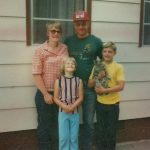 My husband’s Uncle Eddie Hein was a man of integrity. He worked hard in everything he did. When he decided to take on a job, schooling, family and family projects, or anything he did for other people…he did it with integrity. People always knew they could count on Eddie to be there to help them out of any jam, or just when they need a little bit of assistance. Eddie built the additions to the family home, that gave it enough room for all of them.
My husband’s Uncle Eddie Hein was a man of integrity. He worked hard in everything he did. When he decided to take on a job, schooling, family and family projects, or anything he did for other people…he did it with integrity. People always knew they could count on Eddie to be there to help them out of any jam, or just when they need a little bit of assistance. Eddie built the additions to the family home, that gave it enough room for all of them.
Eddie lived most of his life in Forsyth, Montana, with the exception of the years he spent in Casper, Wyoming working at Rocky Mountain Pack and going to night classes at Casper College to get his degree in mechanics; and the years when he was in the US Army, where he served his country during the Vietnam War. He was honorably discharged in 1966. That was when he met his future wife, Pearl Krueger. They got married on July 15, 1967…the happiest day of their lives. Their marriage was blessed with two children, Larry Hein and Kim Arani. They also had three grandchildren, one of whom, Destiny Hein, was born on Eddie’s birthday, giving them a very special bond. They were best friends.
Eddie worked at the Forsyth Standard Station until he was hired at Peabody Coal on May 4th, 1970. He worked for Peabody Coal until 2005, then he went to work for Western Energy Coal Company, retiring in 2010. Eddie was a respected worker at all of his jobs, and I’m sure they were sorry to see him move on to other jobs. Uncle Eddie had a presence that made people feel good. He had a smile that made you smile too. Uncle Eddie was always a working man, and I know it was very hard when he had the stroke that really slowed him down. It was hard on him, Aunt Pearl, their kids, and grandkids. They worried about him and wondered if he was going 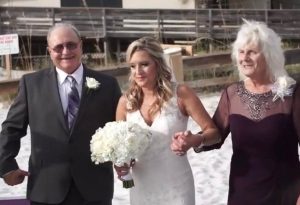
 to come out of this, but he did come out of it. He did walk again, and he was able to walk Kim down the “isle” on the beach, when she and her husband, Mike Arani were married. I suppose that it was his strength to come back from the stroke that made his heart attack, and subsequent passing on October 16, 2019, so hard to believe. I still can’t believe he is gone. Today would have been Uncle Eddie’s 77th birthday. Happy birthday in Heaven, Uncle Eddie. We love and miss you very much.
to come out of this, but he did come out of it. He did walk again, and he was able to walk Kim down the “isle” on the beach, when she and her husband, Mike Arani were married. I suppose that it was his strength to come back from the stroke that made his heart attack, and subsequent passing on October 16, 2019, so hard to believe. I still can’t believe he is gone. Today would have been Uncle Eddie’s 77th birthday. Happy birthday in Heaven, Uncle Eddie. We love and miss you very much.
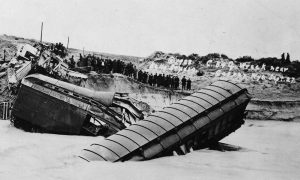 Rain…most often a welcome sight, especially during the hot summer months, and sometimes early fall months too. The Casper, Wyoming area is not one to get a lot of rain, however. Nevertheless, the rain had been coming down heavily for a week, that late September of 1923. In fact there had been three straight days of downpour. The railroad personnel were keeping a close eye on the rivers, creeks, and bridges. They were concerned, but did not expect the volatile, and possibly catastrophic situation that could be heading their way. Cole Creek was reported to have less than 16 inches of rainwater in its bed and by 8pm on September 27th, and the bridge was believed secure. Hours later, the water level would reportedly rise two feet in half an hour.
Rain…most often a welcome sight, especially during the hot summer months, and sometimes early fall months too. The Casper, Wyoming area is not one to get a lot of rain, however. Nevertheless, the rain had been coming down heavily for a week, that late September of 1923. In fact there had been three straight days of downpour. The railroad personnel were keeping a close eye on the rivers, creeks, and bridges. They were concerned, but did not expect the volatile, and possibly catastrophic situation that could be heading their way. Cole Creek was reported to have less than 16 inches of rainwater in its bed and by 8pm on September 27th, and the bridge was believed secure. Hours later, the water level would reportedly rise two feet in half an hour.
On September 27, 1923, The Chicago Burlington and Quincy Number 30 passenger train left Casper for Denver at approximately 8:30pm with approximately 60-70 passengers on board. the exact number is unknown. The train reached Cole Creek by 9:15pm and approached the Cole Creek bridge shortly after. Unexpectedly, Number 30 attempted to slow, and eventually braked upon realizing the usually dry gully below was now a torrent of rushing water and vision was severely limited. It is unknown if the rushing water was unnerving or if they saw something of the impending disaster through the rain, but they did attempt to slow down. Unfortunately, the bridge’s trestle had already been washed out or badly weakened. The realization of the situation came too late for the crew of CBQ number 30.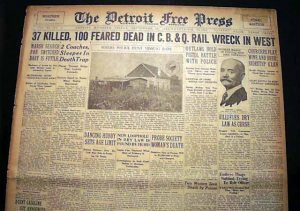
The 100-ton locomotive engine and first five, of seven train cars plummeted into the sand and water below. Most of the passengers were in two of these cars. Ans the cars hit, metal crunched, windows and doors burst under flood of water, steam from the engine scalded passengers and worse, and it would take more than an hour for help to arrive, especially when the first call to the Casper dispatcher’s office didn’t come for 45 minutes. From that point, the city sprang into action. Emergency news alerts calling for doctors and volunteers flashed across movie screens in town. The residents first thought it was a refinery disaster…which was much more expected here than a train wreck. Instead, however, they were faced with the greatest train wreck in Wyoming’s history, as it would come to be known.
Try as they might, rescue crews could do very little until the following morning. At first, bodies were found washed down the North Platte River for hundreds of yards, but they would eventually reach miles down the river. The massive recovery efforts would continue for weeks. The cleanup ended October 15, still daily reports were provided by local newspapers and radio. There were still people missing, but winter was upon them, and anyone who lives near the Platte River, or it’s tributaries, knows that once the ice sets in, bodies remain hidden 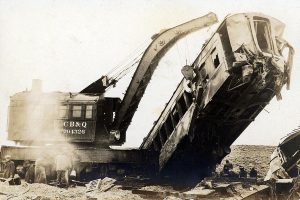 beneath the surface.
beneath the surface.
The body of the train’s conductor, Guy Goff, was found seven months later, in May 1924, washed down the North Platte. Engineer, Ed Spangler, was discovered in January of the following year. In all, the cost of the wreck totaled close to a million dollars and 31 deaths are reported, although the final number remains uncertain because of the discrepancy in passenger numbers. The day after the wreck, a nine-year-old boy was seen searching for days for his father at the wreck site. No confirmation was received that the man was ever found.
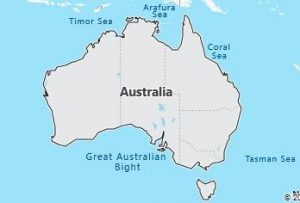 Recently, while listening to an Audible book that was read by the author, from Australia, I began to wonder about his accent, or rather how accents were developed. He had a traditional Australian accent, but I knew from history that Australia was originally part of England, in fact it was their prison island. So, why didn’t the Australians speak with an English accent? I suppose that they did, originally, but after years of living far away from their homeland, the language evolved. Languages tend to do that, even today. people come up with new slang words, and say words in funny ways, then after a while it just sounds better to them the new way. Some people, like the prisoners, might not want to sound anything like the country they came from. For that reason, or for any reason that you would work at gaining or losing as accent, the person tries not to sound like they did with their old accent, working toward their new accent, until it feels natural. Then, the children learn to speak by listening to their parents, and a new accent is born.
Recently, while listening to an Audible book that was read by the author, from Australia, I began to wonder about his accent, or rather how accents were developed. He had a traditional Australian accent, but I knew from history that Australia was originally part of England, in fact it was their prison island. So, why didn’t the Australians speak with an English accent? I suppose that they did, originally, but after years of living far away from their homeland, the language evolved. Languages tend to do that, even today. people come up with new slang words, and say words in funny ways, then after a while it just sounds better to them the new way. Some people, like the prisoners, might not want to sound anything like the country they came from. For that reason, or for any reason that you would work at gaining or losing as accent, the person tries not to sound like they did with their old accent, working toward their new accent, until it feels natural. Then, the children learn to speak by listening to their parents, and a new accent is born.
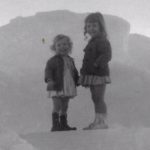
As a child, I moved from my birthplace in Superior, Wisconsin, where my Uncle Bill’s family lived, to Casper, Wyoming, where my mom’s family lived. As the years went by, unbeknownst to us, my sister, Cheryl and I began to lose our accent. I didn’t even know we had an accent. Of course, when the change was pointed out to us, that we had an accent, we were shocked. We thought our Wisconsin cousins had an accent. Of course, we both did. Theirs was a Midwestern accent, and ours was a Western accent. It’s really strange to consider that the United States has basically four, and maybe five different accents. Somehow, I didn’t think of my own accent as being an accent, until my cousin mentioned it. I think we all recognize a Southern accent, but some of the others are a little bit more subtle, except maybe the Eastern accent. When about sounds like aboot, and Boston sounds like Baston, it isn’t something that is easily missed. It stands out as much as the Southern y’all 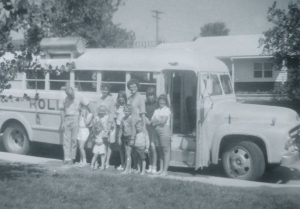 that we are all so fond of.
that we are all so fond of.
Language is ever evolving. We have created new words for things we didn’t have before, or slang words for things we have always had. We have made up words just to be funny, and somehow they new words stuck, and even got added to the dictionary at some point. Words that were unacceptable grammar in times past, suddenly are acceptable. The way we talk compared to the way of just one or two generations ago, can be enough different that if we saw them side by side, we would almost never know that the two dialects started out as one.
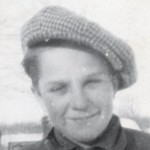
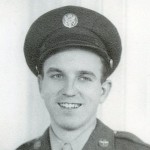
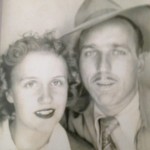 My dad…when I think of him, I always feel such a sense of pride in who he was. He had lived so great a life, seen so many things, gone places, and while many people might not think his life was so grand, I did. My dad, Allen Spencer, was born on April 27, 1924 in Superior, Wisconsin, to Allen and Anna (Schumacher) Spencer. He was the third of their four children, and one of two rather mischievous boys. The family owned a farm, and the children helped with the chores there. His dad worked for the Great Northern Railroad as a carpenter, building and repairing the seats on the train, and any other carpentry work needed. That fact gave the children Laura, William (Bill), Allen (my dad), and Ruth, the unique privilege of having a pass to ride the train for free, as a dependent of their dad, making their trips to school easier, though not without adventure. As I said, the boys were mischievous, and boarding the train in the normal, everyday way was just too boring. They boys hopped on the moving train, every chance they got, always hoping not to be caught and scolded. They were told repeatedly not to hop on the train, because it was unsafe, but they were boys, and they liked the danger.
My dad…when I think of him, I always feel such a sense of pride in who he was. He had lived so great a life, seen so many things, gone places, and while many people might not think his life was so grand, I did. My dad, Allen Spencer, was born on April 27, 1924 in Superior, Wisconsin, to Allen and Anna (Schumacher) Spencer. He was the third of their four children, and one of two rather mischievous boys. The family owned a farm, and the children helped with the chores there. His dad worked for the Great Northern Railroad as a carpenter, building and repairing the seats on the train, and any other carpentry work needed. That fact gave the children Laura, William (Bill), Allen (my dad), and Ruth, the unique privilege of having a pass to ride the train for free, as a dependent of their dad, making their trips to school easier, though not without adventure. As I said, the boys were mischievous, and boarding the train in the normal, everyday way was just too boring. They boys hopped on the moving train, every chance they got, always hoping not to be caught and scolded. They were told repeatedly not to hop on the train, because it was unsafe, but they were boys, and they liked the danger.
Growing up, the train adventures weren’t the only ones the boys had, and probably not the most dangerous either. When dad was about 15 and his brother, Uncle Bill about 17, the boys decided to take the summer and go look for work. They didn’t make reservations at hotels, or have previously lined up jobs, but rather hit the road and did odd jobs in the towns they came across. One time there was no room in the local hotel, so the local sheriff allowed them to sleep in the jail…the first and last time either of them was in jail, as far as I know. If I know my dad and my uncle, they thought it was a great adventure…even though their mother would have been appalled. Or maybe she would have been grateful to the sheriff for keeping her boys off the street.
When Dad was 17, he left home to go work at Douglas Aircraft Company in Santa Monica, California, building airplanes. I often wonder if it was his work there that made him a prime candidate for the position he held in World War II, as a top turret gunner and flight engineer on a B-17 based at Great Ashfield, Suffolk, England. I don’t know his thoughts on being in one of the countries where his ancestors had hailed from, but to my genealogist’s eyes, it would have been the best gift ever given…had it not been for the war, of course. To find himself in the “old stomping grounds” of many of his ancestors…well, it would have been beyond awesome. Dad, decided that he didn’t need much, and so he sent most of his pay home to be put in saving, telling his mom, that if she needed it, she was to use it, because he could always get a job when he got home. In war, times are tough, and Dad wanted to make sure that his family, back home in Superior was well and had enough money to get by. During his R and R time, Dad spent time in Miami, Florida and Galveston, Texas, and of course his training for service had taken place on several air bases across the United States. Dad had always loved to travel, so I’m sure his wanderer’s heart took great pleasure in the many locations he found himself in.
It was, in fact, his wanderer’s heart that brought him across the path of my Aunt Virginia and her husband at the time. She later introduced him to her sister and his future wife, my mom, Collene Byer. Mom was totally smitten by Dad, immediately thinking that he was the most handsome man she had ever seen. Before long, she loved him immensely, but she was a school girl, and had to wait a while to actually marry him. As was more common in those days, my dad was twelve years older than my mom, but theirs was a love that would last until his passing in 2007. Even after his passing, Mom had no desire to see anyone else. She just couldn’t imagine it. He was the only love of her life.
Dad never lost the love of travel, though his married life settled him first for several years in Superior, Wisconsin, and the for the rest of his life in Casper, Wyoming. He wanted to show his family the places he loved, most importantly the United States. He often told us that this was a beautiful country, and not only should we try to see it, we should drive, because you could see much more from the ground than from a plane. Of course, for most of us time constraints don’t allow for cross country drives, but after the flight to get there, we try to see the area surrounding our destination. Dad, I’m certain, would have viewed that type of travel with a measure of skepticism. Still, he loved to hear about our travels. He always seemed to have a far away look on 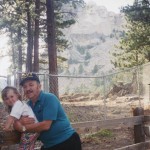
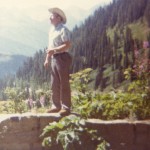
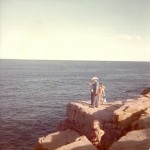 his face, because he could picture the same place in his mind…you see, he had most likely been there before, and he was so happy that we had followed in his footsteps. Today would have been my dad’s 96th birthday. Happy birthday in Heaven, Dad. I know you and Mom are having a wonderful time. We love and miss you very much and can’t wait to see you again.
his face, because he could picture the same place in his mind…you see, he had most likely been there before, and he was so happy that we had followed in his footsteps. Today would have been my dad’s 96th birthday. Happy birthday in Heaven, Dad. I know you and Mom are having a wonderful time. We love and miss you very much and can’t wait to see you again.
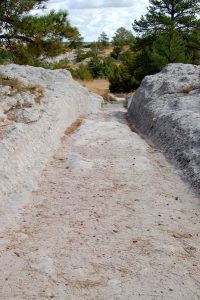 In the years when my kids were in elementary school, every kid in probably 4th or 5th grade got to take a field trip to Guernsey, Wyoming to see the Oregon Trail ruts located there. I don’t know if that is a field trip the schools take anymore, but they did then. Of course, I had seen the Oregon Trail many times before, because my parents loved showing us the history all around us, including stopping at just about every place where the Oregon Trail crossed the highway on our travels. Still, I did not recall seeing the ruts located at Guernsey before, so as a parent who got to go along, it was quite a treat. I was fascinated by the fact that those wagons could make ruts in the rocks. So many of the areas of the Oregon Trail are just a path, or you can’t even tell it’s trail. You just know that it’s where the trail is because of the marker. But there, in the rocks near Guernsey, years after the Oregon Trail was in use, the ruts remain.
In the years when my kids were in elementary school, every kid in probably 4th or 5th grade got to take a field trip to Guernsey, Wyoming to see the Oregon Trail ruts located there. I don’t know if that is a field trip the schools take anymore, but they did then. Of course, I had seen the Oregon Trail many times before, because my parents loved showing us the history all around us, including stopping at just about every place where the Oregon Trail crossed the highway on our travels. Still, I did not recall seeing the ruts located at Guernsey before, so as a parent who got to go along, it was quite a treat. I was fascinated by the fact that those wagons could make ruts in the rocks. So many of the areas of the Oregon Trail are just a path, or you can’t even tell it’s trail. You just know that it’s where the trail is because of the marker. But there, in the rocks near Guernsey, years after the Oregon Trail was in use, the ruts remain.
The Oregon Trail is a 2,170 mile wagon route trail that meandered from the Missouri River to Oregon. It was first laid by fur traders and trappers from about 1811 to 1840. During those years, it was only passable on foot or by horseback. Then by 1836, the wagon trains began to head from Independence, Missouri to places in the west. The trail had been cleared to 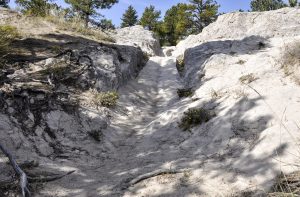 Fort Hall, Idaho by then. As time went on, the trail was cleared all the way to the Willamette Valley in Oregon. These days, the trail crosses our highways in many places, and markers have been placed so the travelers can learn a little history of the trail and what might have happened at each part of it. At the time my parents were showing us all those markers, my sisters and I usually groaned about stopping yet again, at another of the endless Oregon Trail markers that, at that time, we dreaded being forced to read all about. These days, when I think back, I can appreciate the things they tried to show us in this great nation of ours. And I can appreciate the ruts in the rocks outside of Guernsey that have endured for 184 years.
Fort Hall, Idaho by then. As time went on, the trail was cleared all the way to the Willamette Valley in Oregon. These days, the trail crosses our highways in many places, and markers have been placed so the travelers can learn a little history of the trail and what might have happened at each part of it. At the time my parents were showing us all those markers, my sisters and I usually groaned about stopping yet again, at another of the endless Oregon Trail markers that, at that time, we dreaded being forced to read all about. These days, when I think back, I can appreciate the things they tried to show us in this great nation of ours. And I can appreciate the ruts in the rocks outside of Guernsey that have endured for 184 years.
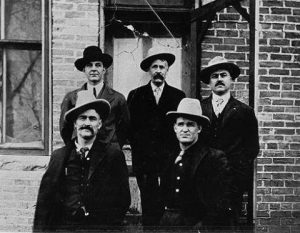 In the early years of Wyoming’s history, there was contention between cattle ranchers and sheep ranchers. The cattlemen thought the land was theirs, and they thought the sheepmen were invading their domain, and they weren’t going to allow it. Cattlemen were first to arrive in the Big Horn Basin, trailing in huge herds of cattle in 1879. They insisted their early arrival established a prior claim to the grass on the government land where their herds grazed. But the law said otherwise. The Cattle and Sheep Wars sprung from this dispute in the Western United States, but they were most common in Texas, Arizona, and the border region of Wyoming and Colorado. The cattlemen thought the sheep destroyed the public grazing lands, which they had to share on a first-come, first-served basis.
In the early years of Wyoming’s history, there was contention between cattle ranchers and sheep ranchers. The cattlemen thought the land was theirs, and they thought the sheepmen were invading their domain, and they weren’t going to allow it. Cattlemen were first to arrive in the Big Horn Basin, trailing in huge herds of cattle in 1879. They insisted their early arrival established a prior claim to the grass on the government land where their herds grazed. But the law said otherwise. The Cattle and Sheep Wars sprung from this dispute in the Western United States, but they were most common in Texas, Arizona, and the border region of Wyoming and Colorado. The cattlemen thought the sheep destroyed the public grazing lands, which they had to share on a first-come, first-served basis.
On April 2, 1909, the range war between the cattlemen and sheepmen in the Ten Sleep, Wyoming area came to a head, when a group of cattlemen decided that they were going to settle this battle once and for all. They headed to Spring Creek seven miles south of Ten Sleep, Wyoming where they knew of a camp. This was to be the last of the sheep raids in the Big Horn Basin. That fateful day, seven cattlemen attacked a sheep camp near 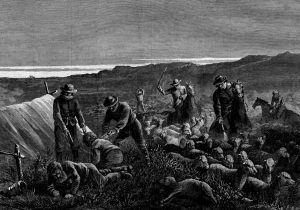 Spring Creek, just south of Ten Sleep, in the southern Big Horn Basin. When the raiders attacked, they killed three men, two of whom the burned to death in their sheep wagon. Then shooting the third man, the decided to kidnap two others. Then they killed the sheep dogs and dozens of sheep and destroyed thousands of dollars of personal property. It was the deadliest sheep raid in Wyoming history. I understand killing in war, but this was murder, and it was horrific!!
Spring Creek, just south of Ten Sleep, in the southern Big Horn Basin. When the raiders attacked, they killed three men, two of whom the burned to death in their sheep wagon. Then shooting the third man, the decided to kidnap two others. Then they killed the sheep dogs and dozens of sheep and destroyed thousands of dollars of personal property. It was the deadliest sheep raid in Wyoming history. I understand killing in war, but this was murder, and it was horrific!!
Wyoming was a territory from July 25, 1868 to July 10, 1890. Early on, there were more cattle ranches than sheep ranches, and the cattlemen felt like they had priority to public lands. Sheep raids began to plague Wyoming since the late 1890s, by which time sheep outnumbered cattle on Wyoming ranges. By 1909, at least six men had been killed, thousands of sheep had been slaughtered, and many thousands of dollars of property destroyed. Nevertheless, there had not been a single conviction for a crime committed during a sheep raid.
It’s really no surprise, given the rising numbers of sheep on the range in those years, that cattlemen were 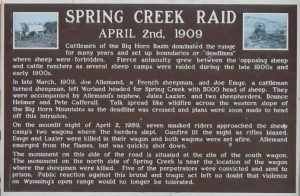 feeling pressured. By 1894 there were 1.7 million sheep in Wyoming and only 675,000 cattle. By 1909, the state’s peak year for sheep, there were more than six million sheep, and only 675,000 cattle. It makes sense that there were tensions, but that did not excuse the men on either side committing murder. Yes, Wyoming was a part of the wild west, and the lawmen were not always readily available, but that did not mean that these men should be able to kill the competition. We are ultimately, civilized people after all, even if we do live in the wild west. After the arrests for the Spring Creek Raid, the cattlemen we reluctant to raid the sheep camps, and with that, a horrific event of the old west passed into history.
feeling pressured. By 1894 there were 1.7 million sheep in Wyoming and only 675,000 cattle. By 1909, the state’s peak year for sheep, there were more than six million sheep, and only 675,000 cattle. It makes sense that there were tensions, but that did not excuse the men on either side committing murder. Yes, Wyoming was a part of the wild west, and the lawmen were not always readily available, but that did not mean that these men should be able to kill the competition. We are ultimately, civilized people after all, even if we do live in the wild west. After the arrests for the Spring Creek Raid, the cattlemen we reluctant to raid the sheep camps, and with that, a horrific event of the old west passed into history.
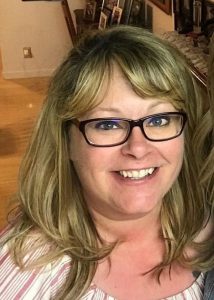
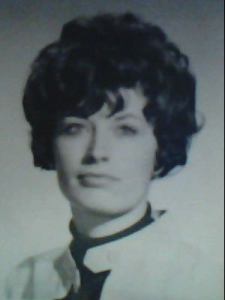
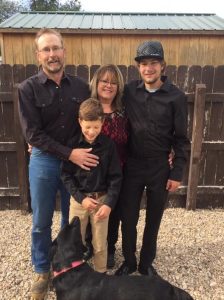 My sister-in-law, Rachel Schulenberg has spent time in several areas of Wyoming in her lifetime. Most of them, I didn’t really know about. One place in particular was a surprise…the small town of Wapiti, Wyoming, where Rachel lived during her elementary school years. Rachel seems to have really enjoyed those years, and talks about walking by the “Weird and Wacky Smith Mansion” every day. When I look at the pictures of the Smith Mansion, I can see how it would be very interesting…especially for a kid. The mansion looks “haunted” in many respects, but it also looks somewhat like a “three ring circus.” It seems to have unusual entrances, strange floors…some of which are like a terrace, and in general, a look that is very similar to an oil derrick. I don’t know if the kids ever got in there to play, but it wouldn’t surprise me to find out they tried.
My sister-in-law, Rachel Schulenberg has spent time in several areas of Wyoming in her lifetime. Most of them, I didn’t really know about. One place in particular was a surprise…the small town of Wapiti, Wyoming, where Rachel lived during her elementary school years. Rachel seems to have really enjoyed those years, and talks about walking by the “Weird and Wacky Smith Mansion” every day. When I look at the pictures of the Smith Mansion, I can see how it would be very interesting…especially for a kid. The mansion looks “haunted” in many respects, but it also looks somewhat like a “three ring circus.” It seems to have unusual entrances, strange floors…some of which are like a terrace, and in general, a look that is very similar to an oil derrick. I don’t know if the kids ever got in there to play, but it wouldn’t surprise me to find out they tried.
Rachel went to a sweet little country school in Wapiti, and apparently, the country life suited her…to a degree anyway. These days, she is back living in the country, but the roads in Homa Hills really don’t make country living easy. I lived out there for a while myself, and the Gumbo Clay is sticky and sloppy. It’s nothing like the picture perfect country lanes we all read about. Still, for Rachel and my brother-in-law, Ron it’s home.
Rachel’s years in Wapiti were sweet, and also bitterly sad. It was here that her mother, Connie Rae Mooren Franklin passed away. Rachel was just past 10 years old at the time. It was a devastating part of Rachel’s past, 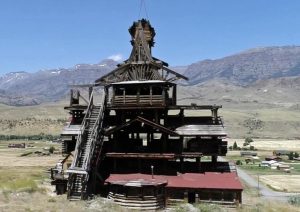
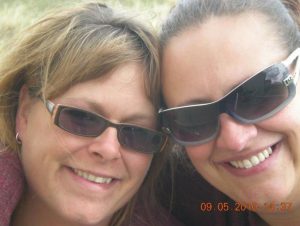 because she will always miss her mom. The family moved away from Wapiti shortly thereafter. Rachel had some tough years after her mother passed away, but one wonderful person came from her grief to give her purpose in life. Her daughter Cassandra “Cassie” was born when Rachel was 16 years old. Cassie says they went through high school together, and I’m sure that’s true. Many schools had an on-site daycare for young mothers. She graduated high school with her baby girl, went on to college, and got her accounting degree shortly afterwards. While she was in college at Northwestern Community College, she and Cassie lived in Trapper Village West. After her marriage and divorce, from her first husband and with two sons, Riley Birky, and Tucker Schulenberg (who was legally adopted by my brother-in-law, Ron), Rachel worked in home health for quite a while. Cassie tells me what an inspirationally hard-working single mom. She made their lives as close to normal as could be. The family had two dogs when Cassie was a teenager…a Poodle and a Shih Tzu.
because she will always miss her mom. The family moved away from Wapiti shortly thereafter. Rachel had some tough years after her mother passed away, but one wonderful person came from her grief to give her purpose in life. Her daughter Cassandra “Cassie” was born when Rachel was 16 years old. Cassie says they went through high school together, and I’m sure that’s true. Many schools had an on-site daycare for young mothers. She graduated high school with her baby girl, went on to college, and got her accounting degree shortly afterwards. While she was in college at Northwestern Community College, she and Cassie lived in Trapper Village West. After her marriage and divorce, from her first husband and with two sons, Riley Birky, and Tucker Schulenberg (who was legally adopted by my brother-in-law, Ron), Rachel worked in home health for quite a while. Cassie tells me what an inspirationally hard-working single mom. She made their lives as close to normal as could be. The family had two dogs when Cassie was a teenager…a Poodle and a Shih Tzu.
Before her marriage to my brother-in-law, Rachel worked for and the family attended Glad Tidings Church. She met my brother-in-law, through her nest friend, Machelle Moore, who was not only with her through the good, bad, and ugly things in life, but was also, Ron’s niece. It was a marriage made in Heaven for both of them…and it made Machelle her niece too. Things just kept getting better and better. Then when Ron adopted her younger son, Tucker, it was the topper on what was to be a beautiful cake of life. Add two precious little grandchildren, 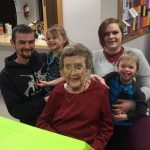
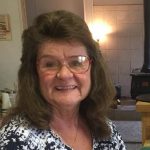
 Lucas and Zoey, and life is perfect. Of course, loss can continue to come, and Rachel recently lost her second mom (technically step-mom) Jan, and her grandmother. Today is Rachel’s birthday. She is an inspiration to a lot of us. Life wasn’t easy, but you made it beautiful for you and your family. Happy birthday Rachel!! Have a great day!! We love you!!
Lucas and Zoey, and life is perfect. Of course, loss can continue to come, and Rachel recently lost her second mom (technically step-mom) Jan, and her grandmother. Today is Rachel’s birthday. She is an inspiration to a lot of us. Life wasn’t easy, but you made it beautiful for you and your family. Happy birthday Rachel!! Have a great day!! We love you!!
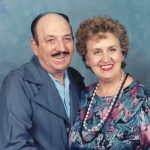
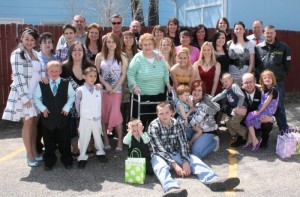 Five years is such a long time, and yet such a short time. I simply can’t believe that my mom has been in Heaven that long. The day she left us is still vivid in my memory files. It is a picture I will never get out of my head. There are a few scenes in my head that are that way. I try not to focus on them. They don’t need to be re-run to keep their memory alive. I try to focus on the happier past…the memories of the good times with my mom.
Five years is such a long time, and yet such a short time. I simply can’t believe that my mom has been in Heaven that long. The day she left us is still vivid in my memory files. It is a picture I will never get out of my head. There are a few scenes in my head that are that way. I try not to focus on them. They don’t need to be re-run to keep their memory alive. I try to focus on the happier past…the memories of the good times with my mom.
Collene Spencer was a bit of a shy girl, but she knew a good looking man when she saw one. For her, falling in love with my dad was like breathing…and she never looked back. Mom didn’t really like school, so that was not something that had any hold on her. She wanted to be married and have a family. I don’t really know if that had been her dream, before she met my dad, but it certainly was after that meeting. Their honeymoon was a move East to Superior, Wisconsin where Dad’s family was from and still lived. Mom’s family liked the idea too, because it gave them someplace to go visit. It was a beautiful place to visit too, so that was a plus. While mom eventually wanted to and did move back, her family wished she had stayed, so they could justify more visits.
After having their first two daughters, Cheryl Masterson, and me in Superior, Mom and Dad had the rest, Caryl Reed, Alena Stevens, and Allyn Hadlock here in Casper, Wyoming, where Mom’s family mostly lives. I have always thought we were very blessed to have so much family around us. That has never really been made so clear as when we became orphans. That’s when family really means a lot. My sisters, and our families first and foremost, of course, but aunts, uncles, and especially cousins have stepped in too…making us feel loved and comforted. I will always miss my parents…until the day I join them in Heaven. They taught us so many things, 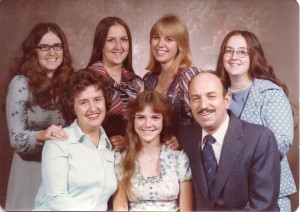
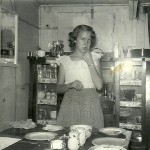 and it is because of their upbringing that we are the women we are today. The best we can do is make them proud of the people their children have become. I can’t believe that my mom has been in Heaven for five long years now. It seems an impossible number of years. While it seems just seconds ago to those who are there, mostly because that’s how eternity works, for the rest of us, the days feel much longer. We love and miss you Mom, and we can’t wait to see you again.
and it is because of their upbringing that we are the women we are today. The best we can do is make them proud of the people their children have become. I can’t believe that my mom has been in Heaven for five long years now. It seems an impossible number of years. While it seems just seconds ago to those who are there, mostly because that’s how eternity works, for the rest of us, the days feel much longer. We love and miss you Mom, and we can’t wait to see you again.

